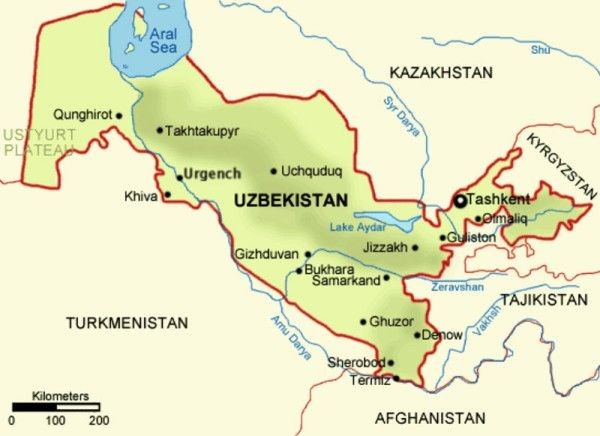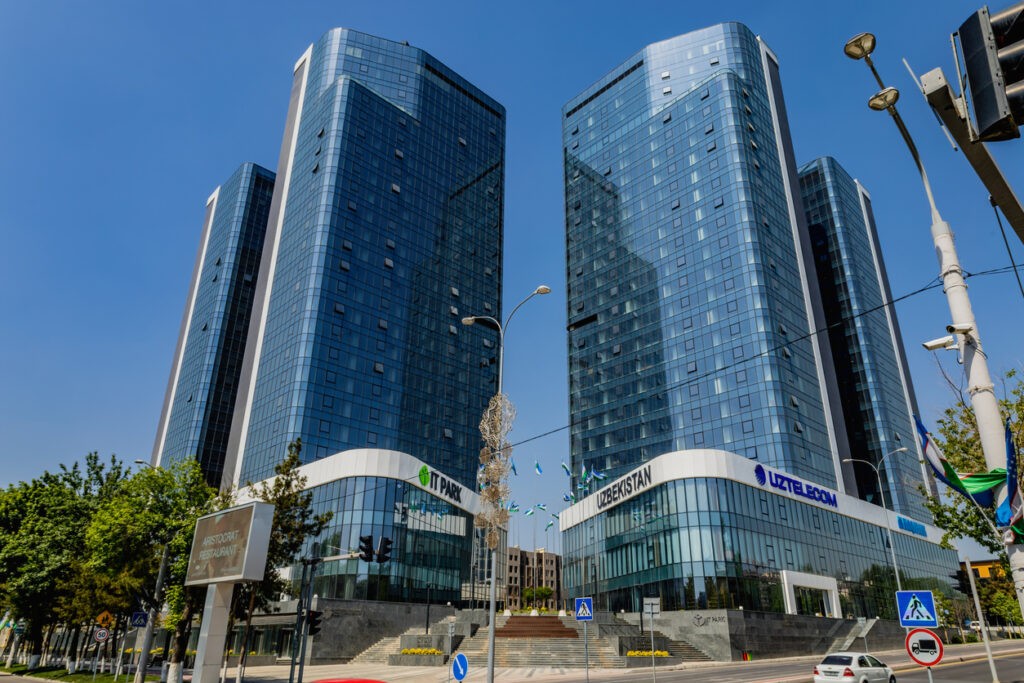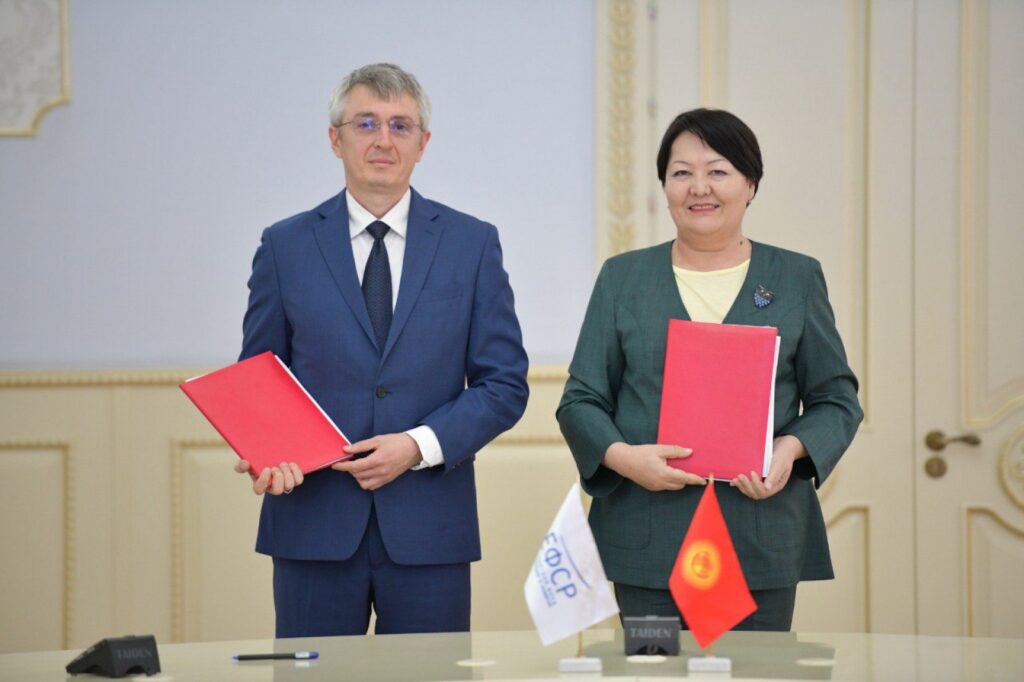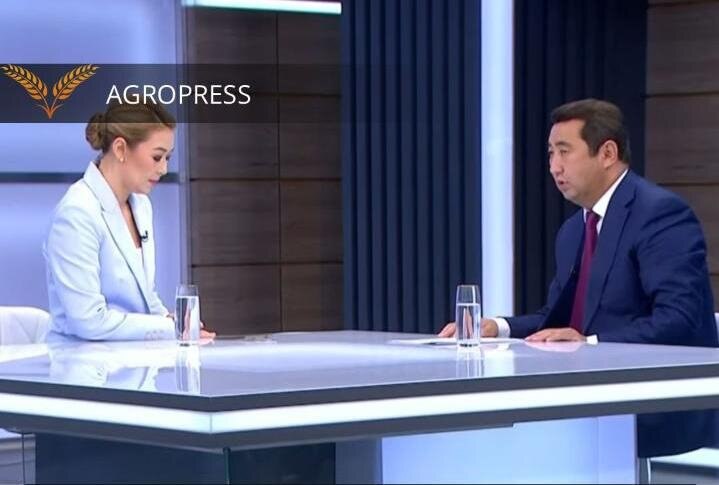TASHKENT (TCA) — High infrastructure spending, an improved investment climate, increased exports, and expected agriculture pickup are helping Uzbekistan sustain its growth, but the economy remains challenged by persistent credit expansion, accelerated inflation, and a widening current account deficit, according to a new report by the Asian Development Bank (ADB), released on April 3.
In the Asian Development Outlook (ADO) 2019, ADB projects gross domestic product (GDP) growth for Uzbekistan at 5.2% in 2019 and 5.5% in 2020, following 5.1% in 2018. ADO is ADB’s flagship annual economic publication.
“The Government of Uzbekistan is on track to meet its goal of transforming to a market-driven economy,” said ADB Country Director for Uzbekistan Ms. Cindy Malvicini. “Comprehensive reforms will help the country create an enabling environment for businesses, address inequality, enhance productivity, and attain long-term sustainable growth.”
In 2018, investments were the main driver of growth, expanding gross capital formation by 18.1%, compared with 7.1% in 2017. Higher investment in manufacturing, housing, energy, and mining was fueled by a 36.6% surge in foreign investment and lending for fixed capital. Growth in industry, excluding construction doubled to 10.6% in 2018, driven by increases in manufacturing, mining, and quarrying. Construction expanded by 9.9% up from 6.0% in 2017 with gains in housing and production facilities.
The protracted impact of foreign exchange liberalization together with utility price increases, price liberalization for bread, higher wages and pensions, and rapid credit growth accelerated inflation. Average inflation rose from 13.7% in 2017 to 17.9% in 2018, despite exchange rate stability, monetary tightening, and the cancellation of customs duties for basic foodstuffs.
Investments are expected to remain the major growth driver for 2019, reflecting further improvement of the investment climate and government-led investments to modernize manufacturing, mining, power generation, transportation, and housing. Private consumption is expected to benefit from wage growth.
Inflation is projected to decelerate to 16% in 2019 and further to 14% in 2020 as lending growth under state programs slows and customs procedures are further streamlined resulting in increased imports. Inflationary pressure will persist due to a November 2018 rise in energy prices, further hike in electric power and natural gas prices in June 2019, consequent adjustments to pensions and wages, and upwards revisions to customs duties on imports.
The current account deficit is expected to remain high at 7.0% of GDP in 2019 and narrow slightly to 6.5% in 2020. The exports of goods are forecast to grow by 10% in 2019 and 12% in 2020, reflecting an increase in gold prices, stable demand for natural gas from the People’s Republic of China, expanded agricultural exports to the Russian Federation and neighbors, and further processing of cotton into textiles. Imports of goods are projected to rise by 25% in 2019 and 20% in 2020 as demand generated by infrastructure projects and the continued modernization of industry boosts imports for these sectors. External borrowing for state-led development programs is projected to push external debt to the equivalent of 35% of GDP in 2019 and 2020.
The report suggests prioritizing reforms in irrigation, which faces challenges stemming from land degradation and water shortages. The government is recommended to develop a long-term sector strategy, incorporating climate change adaptation and mitigation, farmers’ access to extension services and finance, and secure land tenure. In addition, Uzbekistan should promote water resources management and climate proofing across borders.
Since joining ADB in 1995, Uzbekistan has committed 70 loans totaling $7.4 billion, including two private sector loans totaling $225 million. ADB also provided $6 million in equity investment, $218 million in guarantees, and $87.3 million in technical assistance grants. In 2018, ADB committed five loans totaling $1.1 billion to improve power generation efficiency, primary health care services, access to finance for horticulture farmers and businesses, access to drinking water in the western part of Uzbekistan, and economic management in the country.









